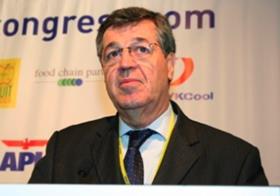
The 2013/14 season has been tough for Chile. How well do you think the industry has withstood the challenges thrown up by September’s freeze and the port strikes and what has been learned from the experience?
Ronald Bown: There have been a few issues that made this the most challenging season that the Chilean industry has experienced so far. Both internal and external factors have impacted on our exports and we have made a lot of effort trying to reassure our customers across the globe that we are doing everything we can to limit any commercial disruption. As always, they have been able to rely on Chilean exporters and growers, even if they were not always able to receive the same volumes.
One of the key outcomes is that it has made us more aware of the types of internal conflicts that we could face. We have acted rapidly to forge closer relationships with workers’ unions, shipping companies and port authorities and have set up periodic meetings which have already seen us make significant progress towards avoiding these situations in the future.
By how much are you expecting final export volumes to be down in 2013/14? Which have been the worst affected products?
RB: As of mid-June we were about 10-12 per cent down in regards to volume in relation to last season. Kiwifruit and stonefruit are the worst affected products and that, of course was more a result of the climatic issues than the strikes.
While there were large drops in exports certain weeks due to the disruption, the weeks that followed also saw big increases in volumes shipped to different regions. So while the strikes will have affected volume in a small way, the main deciding factor was the weather.
Do you think Chile will be able to claw back the market share it has lost in the US this season, or will the focus instead be on continuing to grow its presence in Asia?
RB: There will always be flux in the share of our sendings that each of our key markets takes in any given year. The strikes impacted far more on the US than any of our other markets due to the stage of the season in which they took place. We do have products such as cherries that are making inroads in Asia, but nothing we do there is detracting from our business with the US.






No comments yet